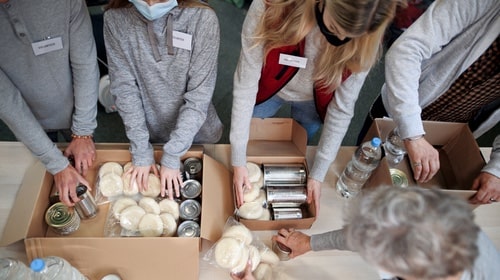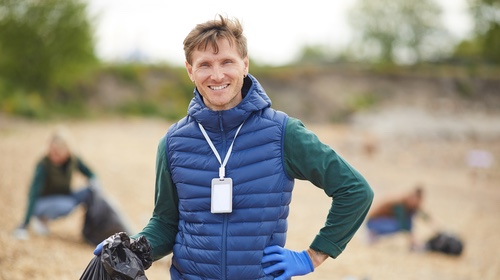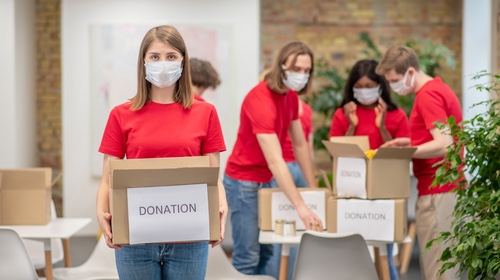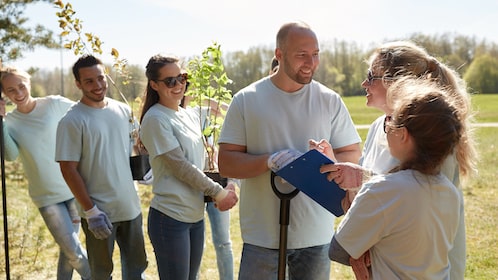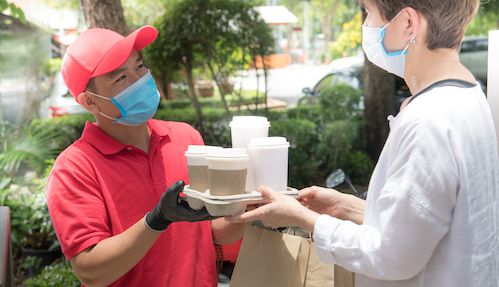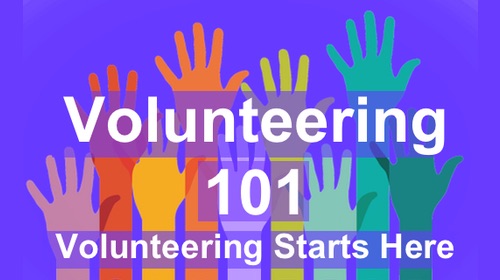Why Risk Training is a Great Thing for Volunteers to Have
Authored by:
iClick2Learn Team
‘Click the video titles below to view them’
Transcripts are available under the videos
Over the last few years, formal training for volunteers has begun to grow in importance, because there are requirements for volunteering roles. Organisations have a duty of care, to clients, paid staff and volunteers, and to community. And volunteering, like any other role, has legislative, regulatory, quality assurance and continuous improvement requirements, particularly if you’re delivering a community service, if you’re working with children, or various other roles.
And if you’re well-trained and competent in your role, you’re going to also have more reason to contribute and to continue as a volunteer than if you didn’t feel confident and felt stressed because you didn’t have that training. So training and ongoing support is really important. Volunteer research in 2001 uncovered that volunteers prefer a variety of training methods.
Obviously, we like to practise, we like access to supervisors to ask questions, perhaps on the job training, to receive guidance on specific lifting techniques, for example. Some peer training or buddies, and e-courses like this one, with ongoing training, supervision and support, rather than theoretical training or reading manuals. So there are multiple ways that you can gain education, training and knowledge throughout your role. The other thing to ask, once you’re on board, is how does the organisation support ongoing training. It could be through inducting, motivating or guiding, and how do you prefer to be motivated and trained.
It’s important to stay safe as a volunteer regardless of the organisation you’re working for or the work that you’re doing because your actions can have a flow-on effect to fellow volunteers, staff, the organisation, the clients, and community that it serves, and this lesson gives you some background on what your responsibilities are. The duty to be safe differs depending on the organisation you’re volunteering for and the activity you’re doing. If the organisation you volunteer for employs anyone to carry out paid work, both you as a volunteer and the organisation you work for are covered under the Workplace Health and Safety Act.
And of course you have responsibilities under that act, so you need to know about how those laws apply in your role. The organisation, hopefully, will have a risk management plan and they’ll be able to tell you the types of risks that are in your role and how to watch out for those. Now workplace health and safety is an interesting one because there are different laws in each state. Some states have joined together under what they call the harmonised laws across Australia. So the harmonised laws state that if you are a volunteer with paid employees, then as a volunteer, you’re under the Workplace Health and Safety Act, but the harmonised laws also state that if you’re a volunteer and there’s no employees, so for example it might be a sporting club with no employees and it’s just made up of all volunteers, then you’re actually regarded as a volunteer association, so the organisation and volunteers aren’t covered under the Workplace Health and Safety Act.
And you don’t have work health and safety duties under the act, but you still need to make sure that you take care to carry out your volunteer tasks in a safe way. You still need to make sure that you’re not negligent, that you’re considering others, and making sure that everybody’s safe. So just because under the act, under the harmonised laws for Australia, as a volunteer organisation, you’re not covered under the act, make sure that you still work safely. So staying safe. If the activity you’re doing is purely domestic, social, recreational, or private in nature, it wouldn’t necessarily be considered as work.
But if the activity would usually be a paid one and you’re doing it voluntarily, then it may also be regarded as work. Look, the critical thing here is to know that everybody has a responsibility to others they’re working with and to the people they’re serving to stay safe, and to make sure that you do as much as possible to ensure that you’re working safely.
During the course of your volunteer role, you may be asked to use vehicles, equipment, or perhaps even handle chemicals. To reduce the risk of injury, it’s important that you’re appropriately trained and you have enough information, instructions, and protection to carry your role out safely. For example, if the role requires the use of a fire extinguisher as a fire warden this would include showing you how to actually use the fire extinguisher, someone demonstrating the process from beginning to end.
Also that information about risks for that equipment and how to minimise those risks. For example, how to hold the nozzle so the spray doesn’t get onto your skin and any protective personal clothing or personal protective equipment, PPE for short, that you might wear to minimise the risk of the chemical spray landing on your skin or in your eyes. No matter what role you have, you should know where the first-aid facilities or the medical kit is located and the procedure for reporting hazards, near misses, and incidence and any emergency procedures for the site.
Let your manager or volunteer coordinator know immediately if you’re unsure of how to use equipment or materials safely. It’s your joint responsibility to make sure that you and others are kept safe.
In Australia, one of the many things that we pride ourselves on, is the way we lend a hand in emergencies. Whether it’s helping with a cleanup after a fire, filling sandbags to prepare for rising floodwaters, or rescuing animals in precarious situations, if you’re one of the emergency volunteers, you’re regarded as volunteering in an emergency situation. Sometimes this is called spontaneous volunteering, in situations where people just didn’t plan on volunteering, until an emergency arose, and they felt the need to really support. There can be some additional risks for you as a spontaneous volunteer, and also for victims and employees.
Because people who offer help during an emergency may not be formally registered, from the organisation as a volunteer. Volunteers in this situation may also not have experience or training to complete tasks they end up doing during the emergency. Or volunteers may also be overqualified for their role and end up doing more than they’re supposed to, because they feel the need to support. What many volunteer organisations do to counter this risk is to provide emergency volunteer information to specifically deal with the situation.
The benefits from having this information are that it provides a clear picture on how emergency or spontaneous volunteers will be used, including how they’re embedded into existing emergency response policies. They also allow for existing volunteers and employees that have the experience to be actively involved in emergency response, knowing how they’ll be supported by their emergency and spontaneous volunteers, and ensuring a core focus so that those affected by a disaster are the first priority. So what will emergency information contain? You’ll find things like how volunteers will be registered.
Information on training to be provided, the volunteer roles needed depending on the nature of the crisis. And you’re also likely to find details on communication, given that one of the most important areas of managing any crisis is a communication and reporting channel. So that will include how and when communication will happen and the things that need to be passed on. It’s also going to include how you managed, to ensure your well being. For example, you may be buddied up or partnered with existing volunteers or employees.
Related posts
Starting a Not-for-Profit
Accidental Counsellor
How to Get Volunteers More Engaged Post-Covid
What is a Volunteer Manager?
Building a Culture That Encourages Volunteers
What do Volunteers want Post-Covid?
Volunteer Interview
4 Steps to Attract Youth Volunteers
5 Tips for Keeping Volunteers
5 Tips for Recruiting Volunteers
Volunteering During COVID [Course]
Volunteering: What to Think About Before Signing up
Volunteer Supervisor
How to Stay Safe While Volunteering
So You’re a Volunteer! What now?
Volunteering 101 [Course]
Volunteer Induction [Course]
Volunteer Position Description
People who Volunteer
Volunteer Costs and Reimbursements
- Tags | Risk
Volunteers | Safety Training | Emergency | Risk



